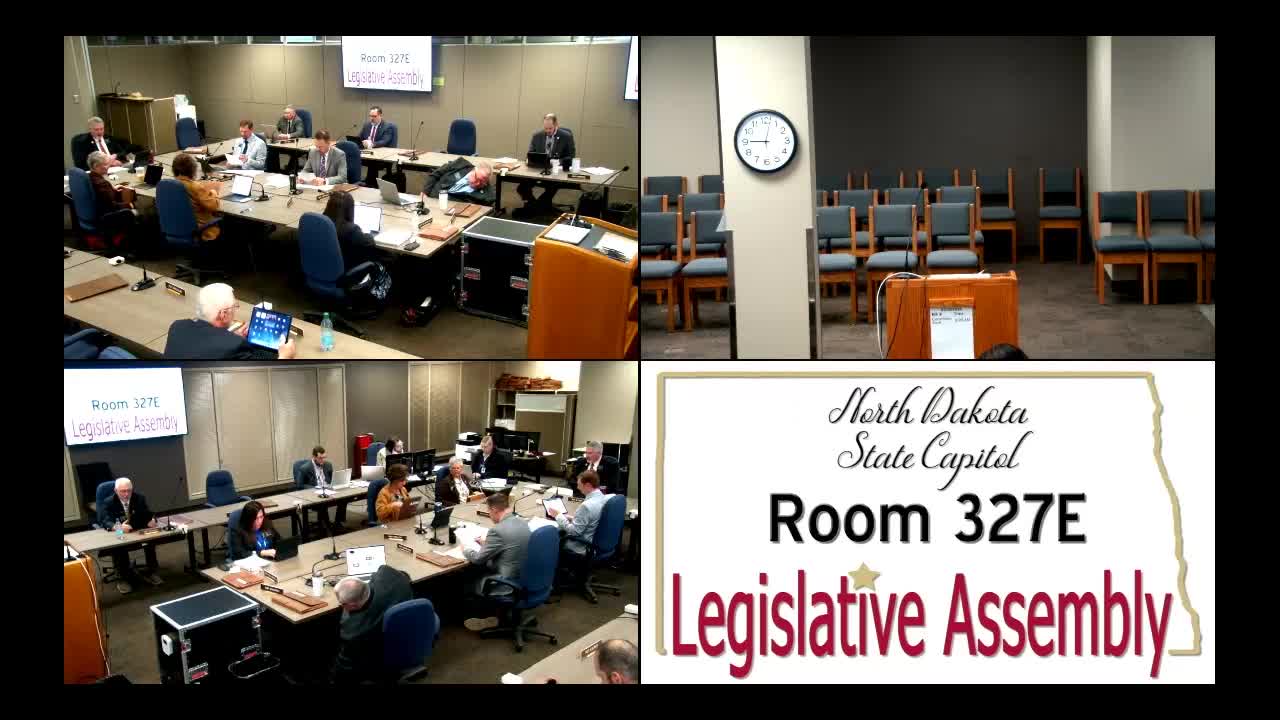Transportation committee holds Senate Bill 2243 for rewrite after debate on points, texting and open-container penalties
Get AI-powered insights, summaries, and transcripts
Subscribe
Summary
The legislative Transportation Committee discussed restoring portions of Senate Bill 2243 that affect motor-vehicle points and fines, expressed concern about raising points for texting and open-container offenses, and agreed to hold the bill for amendments and a Thursday afternoon meeting; no formal votes were taken.
Chairman Ruby convened the Transportation Committee and said the panel would focus on the single remaining measure before it: “we only have the 1 bill left in committee, it's, Senate Bill 2,243.”
The committee spent the meeting debating proposed changes to how driving violations are assigned points and how fines are applied, but took no formal vote and agreed to hold the bill to consider amendments at a follow-up meeting Thursday afternoon.
Representative Joe Koppelman, the bill carrier on the House side, said he wanted to “somewhat restore the original bill.” He told colleagues that the bill as received removed language from the original draft that limited reporting of lower-level violations and instead increased the number of offenses assessed three points. Koppelman said he wanted to put back the original language that treats some violations as two points or less and then selectively raise points where law enforcement data show repeat offenders.
Koppelman warned about raising points for the state’s texting law without careful review. He cited a municipal practice in Fargo that, he said, “doesn't even have an exception for making phone calls,” and expressed concern that making texting or similar conduct worth three points could penalize behavior that may be legal under state statute. He urged the committee to hear from law enforcement before increasing point totals.
Several members questioned reciprocity for out-of-state tickets. Representative Schatz asked whether a ticket issued in another state that would be worth three points here would be reported back and affect a North Dakota license. The chair replied that reciprocity “can” occur in some cases but is not consistent and suggested getting the Department of Transportation involved to clarify how out-of-state tickets affect state point totals.
Schatz also floated a suggestion to raise fines for out-of-state drivers if their violations do not carry over into their home-state records. “If somebody from out of state comes in and gets a ticket worth 3 points, but they don't have points… we should be adding $50 a point to that ticket for out of state people,” Schatz said, as a way to equalize penalties. The transcript does not show a motion to adopt that change.
Representative Fralick pointed to a specific provision on page 6 that adds three points for failing to yield at a stop sign, citing sections he read as “39, 10, and 40 4” and questioning whether the new three-point assignment was appropriate for what might be a minor right-of-way mistake. Koppelman acknowledged there is room to “shave this down” or make targeted additions to the points schedule.
The committee chair summarized next steps: the panel will not meet the following morning, will reconvene Thursday afternoon to consider Koppelman's proposed amendments and try to advance the bill, and will be prepared to handle any conference committees that arise later in the session. No formal motions, roll-call votes, or final actions on SB 2243 were recorded in the transcript.
The discussion touched on but did not resolve other traffic-related items that may surface during the session, including changes tied to an eight0-mile-per-hour speed-limit matter referenced by the chair as possibly requiring follow-up if senators add provisions related to fines or points.
The committee adjourned after setting the follow-up meeting; the bill remains under consideration.
